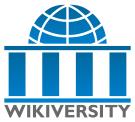For this week’s Wiki Wednesday, we’re taking a look at some of our favorite wikis across the web, celebrating the ways they bring people together to share and collaborate on all kinds of educational, recreational and scientific projects.
Some of Our Favorite Wikis
Founded in 2001 by Jimmy Wales and Larry Sangor, and undoubtedly the most famous wiki, Wikipedia is the “free encyclopedia anyone can edit.” As of today, its English language version boasts 4,617,812 articles. Wikipedia and other Wikimedia projects never stop – they grow at an estimated rate of 10 edits/sec. Pretty amazing. I continue to be impressed with this collaborative project and what it can teach us about knowledge building and sharing. Wikipedia was not by any means the first wiki, but it is perhaps the most “successful.” You can also see the tremendous influence it has had in the following list of other wiki projects, many of which are also encyclopedic in nature.
 Larry Sangor’s later project (2006) , Citizendium, was founded on and continues to represent a response to issues of authority and credibility in Wikipedia. While its goals of knowledge curation and creation are similar to those of Wikipedia, Citizendium uses stricter methods of legitimization in an attempt to provide more reliable content. In Citizendium, “authors use their real, verified names” and “[experts]can be recognized with a special role.”
Larry Sangor’s later project (2006) , Citizendium, was founded on and continues to represent a response to issues of authority and credibility in Wikipedia. While its goals of knowledge curation and creation are similar to those of Wikipedia, Citizendium uses stricter methods of legitimization in an attempt to provide more reliable content. In Citizendium, “authors use their real, verified names” and “[experts]can be recognized with a special role.”
 With 541,572 articles and 10,498 registered users, Ballotpedia is a thriving “interactive almanac of U.S. politics” sponsored by the Lucy Burns Institute. The website’s goal is to provide in-depth, accurate and objective information about local, state, and federal politics. Registered users can add content to Ballotpedia, but this content is fact-checked and reviewed. The new ballot tool lets users retrieve and view district-specific ballots. Cool!
With 541,572 articles and 10,498 registered users, Ballotpedia is a thriving “interactive almanac of U.S. politics” sponsored by the Lucy Burns Institute. The website’s goal is to provide in-depth, accurate and objective information about local, state, and federal politics. Registered users can add content to Ballotpedia, but this content is fact-checked and reviewed. The new ballot tool lets users retrieve and view district-specific ballots. Cool!
![]() A collaborative project for producing and sharing recipes, cooking information and food news, Foodista is built on a structured wiki that allows everyday users to contribute content. Tasty! Check it out.
A collaborative project for producing and sharing recipes, cooking information and food news, Foodista is built on a structured wiki that allows everyday users to contribute content. Tasty! Check it out.
Geo-wiki is a crowd-sourced project that works to engage citizens in environmental monitoring. Geo-wiki begins with the vast amount of raw satellite data provided by computer applications like Google Earth, then asks ordinary citizens to provide assessment of that data’s accuracy and to add overlaying information and analysis about specific geographic spaces. For instance, if satellite imagery shows a certain area being used for agricultural purposes, a citizen observer-contributor can confirm that information, and provide even more specific details.
 Both WikiEducator and Wikiversity were launched in 2006, and both share similar goals: to collaboratively develop and freely host learning materials and support open-access learning communities. WikiEducator, a project supported by non-profit Open Education Resource (OER) Foundation does, however, articulate a slightly more specific mission: “to build a thriving and sustainable global community dedicated to…[the]realization of a free version of the education curriculum by 2015.”
Both WikiEducator and Wikiversity were launched in 2006, and both share similar goals: to collaboratively develop and freely host learning materials and support open-access learning communities. WikiEducator, a project supported by non-profit Open Education Resource (OER) Foundation does, however, articulate a slightly more specific mission: “to build a thriving and sustainable global community dedicated to…[the]realization of a free version of the education curriculum by 2015.”

Wikiversity, which was founded by the Wikimedia foundation, accomplishes similar goals by sharing learning materials and resources and committing to “learning projects and communities that support these materials.”
 Where else can you read about, Cato Parasitti, “a Clawdite female bounty hunter from Zolan who operated during the Clone Wars”? Wookiepedia: The Star Wars Wiki is one of the most popular Wikia hosted wikis, and as of August 2014, feautures 112,500 articles. It’s a testament to the dedication of Star Wars fans everywhere!
Where else can you read about, Cato Parasitti, “a Clawdite female bounty hunter from Zolan who operated during the Clone Wars”? Wookiepedia: The Star Wars Wiki is one of the most popular Wikia hosted wikis, and as of August 2014, feautures 112,500 articles. It’s a testament to the dedication of Star Wars fans everywhere!
Where Do You Wiki?
This is just a handful of all the different applications of wikis out on the web. Tell us, what are some of your favorite wikis? And don’t forget about the wiki we host here at the DRC. Learn how you can contribute to our project to build a knowledge resource for digital rhetorics. Become a DRC Wiki Contributor today!

1 Comment
Pingback: Wiki Wednesday: A Roundup of Wiki Posts — Digital Rhetoric Collaborative